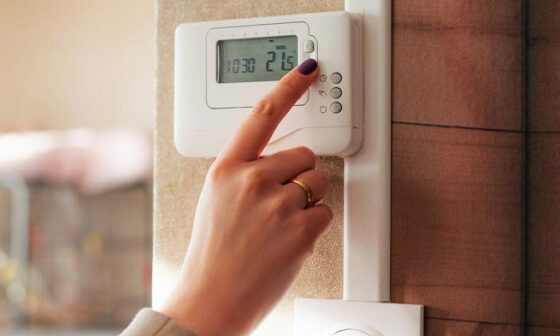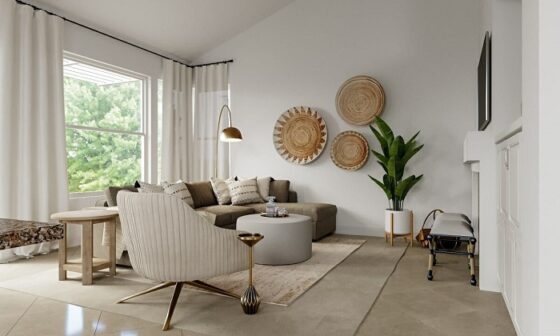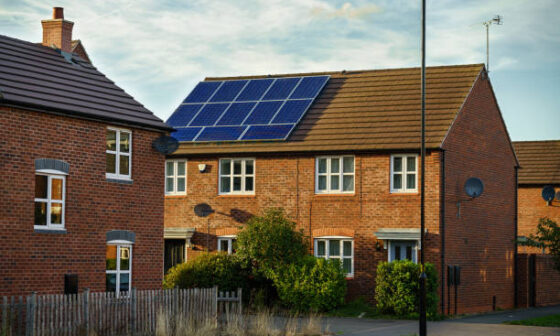
When it comes to choosing the right air conditioner for your space, understanding the concept of BTU is crucial.
In this comprehensive guide, We will explore the details of what BTU is on an air conditioner, how it affects cooling efficiency, and how to select the appropriate BTU rating for your specific needs.
What Is BTU on an Air Conditioner?
BTU, short for British Thermal Unit, is a unit of measurement used to determine the cooling capacity of an air conditioner.
BTU on an air conditioner refers to the amount of thermal energy the unit can remove from a room within a given time period.
It measures the cooling capacity and determines how effectively an air conditioner can cool down a space. The higher the BTU rating, the more cooling power an air conditioner possesses.
How Does BTU Affect Cooling Efficiency?
The BTU rating of an air conditioner plays a crucial role in determining its cooling efficiency. It directly affects how quickly and effectively the unit can cool down a room.
If you choose an air conditioner with a BTU rating that is too low for your space, it may struggle to cool the room adequately, resulting in discomfort during the hot summer months.
On the other hand, selecting an air conditioner with a BTU rating that is too high for your space may lead to inefficient operation, excessive energy consumption, and increased utility bills.
Factors to Consider When Choosing the Right BTU Rating
To ensure optimal cooling performance, it is important to select an air conditioner with the appropriate BTU rating for your specific needs.
Here are some factors to consider when determining the right BTU rating for your space:
1. Room Size
The size of the room is a crucial factor to consider when choosing the right BTU rating. Larger rooms require air conditioners with higher BTU ratings to cool them effectively.
As a general guideline, you can estimate the required BTU rating by multiplying the square footage of the room by 20.
However, it’s important to note that other factors such as room insulation, ceiling height, and the number of windows also influence the cooling requirements.
2. Insulation
The level of insulation in your room affects the cooling efficiency. Well-insulated rooms retain cool air better, reducing the workload on the air conditioner.
If your room has good insulation, you can opt for an air conditioner with a slightly lower BTU rating. However, if your room lacks insulation or has large windows that allow heat to enter easily, it’s advisable to choose an air conditioner with a higher BTU rating.
3. Climate
The climate of your region also plays a role in determining the appropriate BTU rating. Hotter climates require air conditioners with higher BTU ratings to combat the intense heat effectively.
In contrast, cooler climates may require air conditioners with lower BTU ratings as the cooling demands are not as high.
4. Sunlight Exposure
The amount of direct sunlight that enters your room affects its cooling requirements. Rooms with significant sunlight exposure tend to heat up more quickly and require air conditioners with higher BTU ratings.
On the other hand, rooms with minimal sunlight exposure may require air conditioners with lower BTU ratings.
What is the BTU range for different kinds of rooms?
Here is a general guideline for the BTU range in the UK:
-
Small Rooms
Bedrooms, home offices, or small dens typically require air conditioners with BTU ratings ranging from 3,000 to 7,000 BTU/hour.
-
Medium-Sized Rooms
Living rooms, larger bedrooms, or average-sized home theaters usually benefit from air conditioners with BTU ratings between 7,000 and 12,000 BTU/hour.
-
Large Spaces
Open-plan living areas, multiple connected rooms, or commercial spaces often require air conditioners with BTU ratings exceeding 12,000 BTU/hour.
The benefits of selecting the right BTU rating?
Yes, there are energy-saving benefits to selecting the right BTU rating for your air conditioner.
When you choose an air conditioner with the appropriate BTU rating for your specific room size and cooling needs, you can experience the following energy-saving advantages:
-
Efficient Cooling
An air conditioner that is properly sized with the right BTU rating can cool a room more efficiently.
It can reach the desired temperature more quickly and maintain it without excessive cycling on and off. This efficient cooling process helps to conserve energy.
-
Reduced Energy Consumption
When an air conditioner operates at its optimal BTU rating, it doesn’t need to work harder than necessary to cool the room.
As a result, it consumes less energy, which can lead to lower electricity bills.
-
Avoiding Overcooling or Undercooling
Choosing an air conditioner with the correct BTU rating prevents overcooling or undercooling of your space.
If the BTU rating is too high for the room, the air conditioner may cool the room too quickly and then turn off, leading to temperature fluctuations and inefficient energy use.
Conversely, if the BTU rating is too low, the air conditioner may struggle to cool the room adequately, running continuously and wasting energy.
-
Optimal Airflow and Comfort
When the air conditioner is appropriately sized with the right BTU rating, it can maintain proper airflow throughout the room.
This promotes better circulation and ensures consistent cooling, enhancing overall comfort while minimizing the need for excessive energy consumption.
-
Longer Lifespan
Running an air conditioner at its recommended BTU rating reduces the strain on the unit.
It helps prevent excessive wear and tear, which can extend the lifespan of the equipment. This, in turn, reduces the need for premature replacements, saving both energy and money in the long run.



Comments are closed.